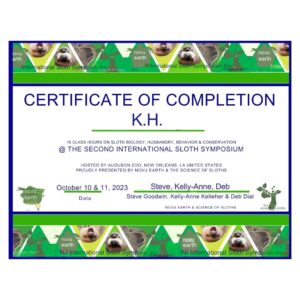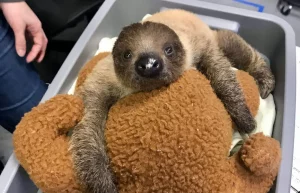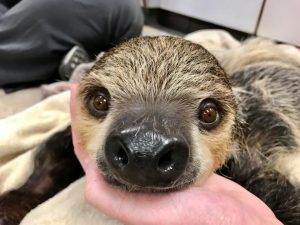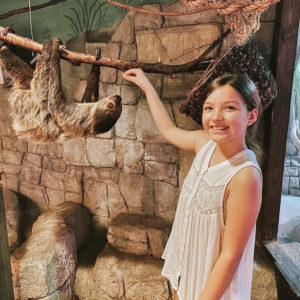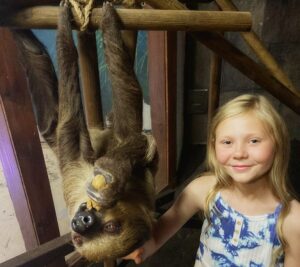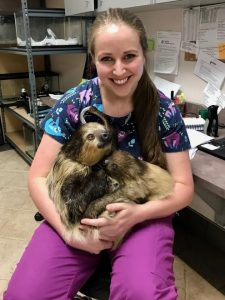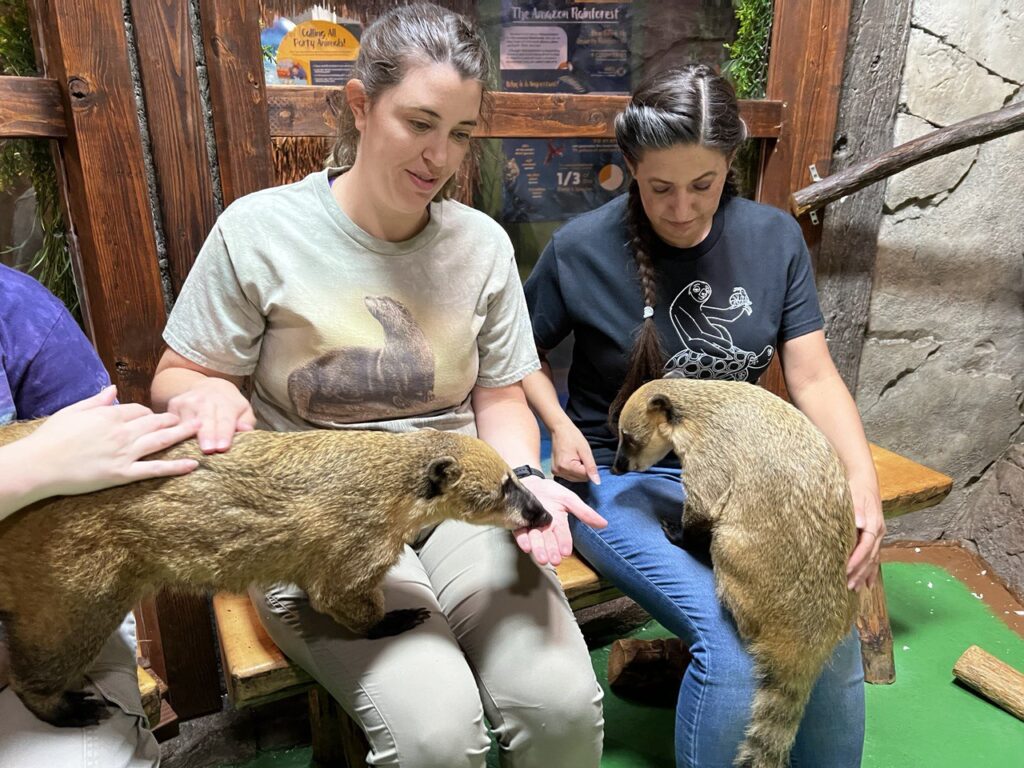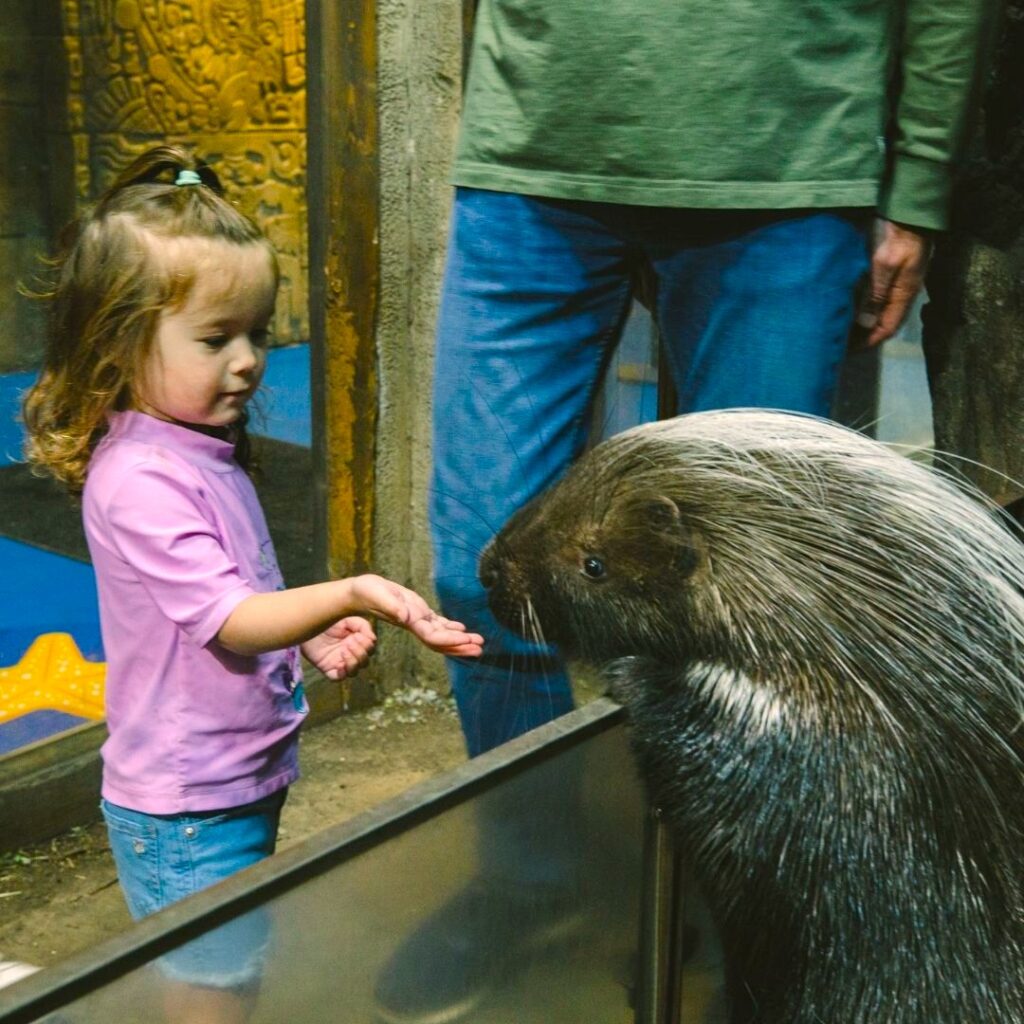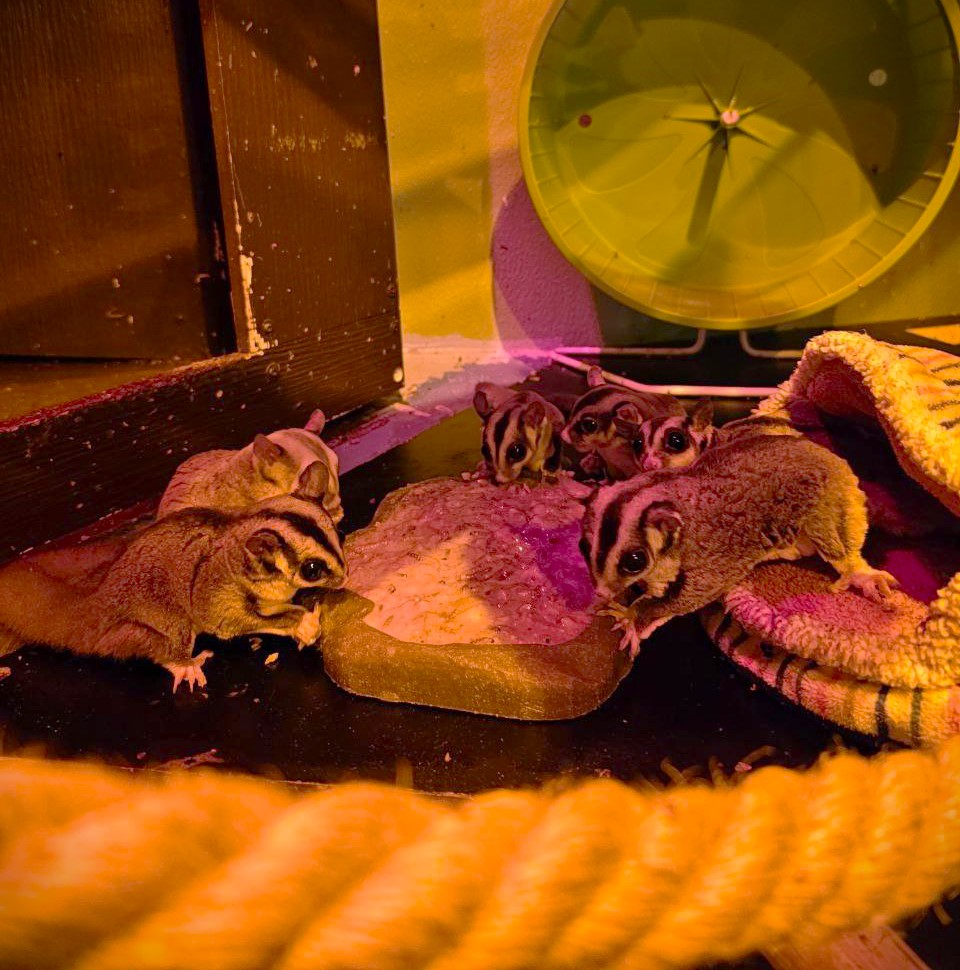How Are Sloths at SeaQuest Cared For?
Share it on:
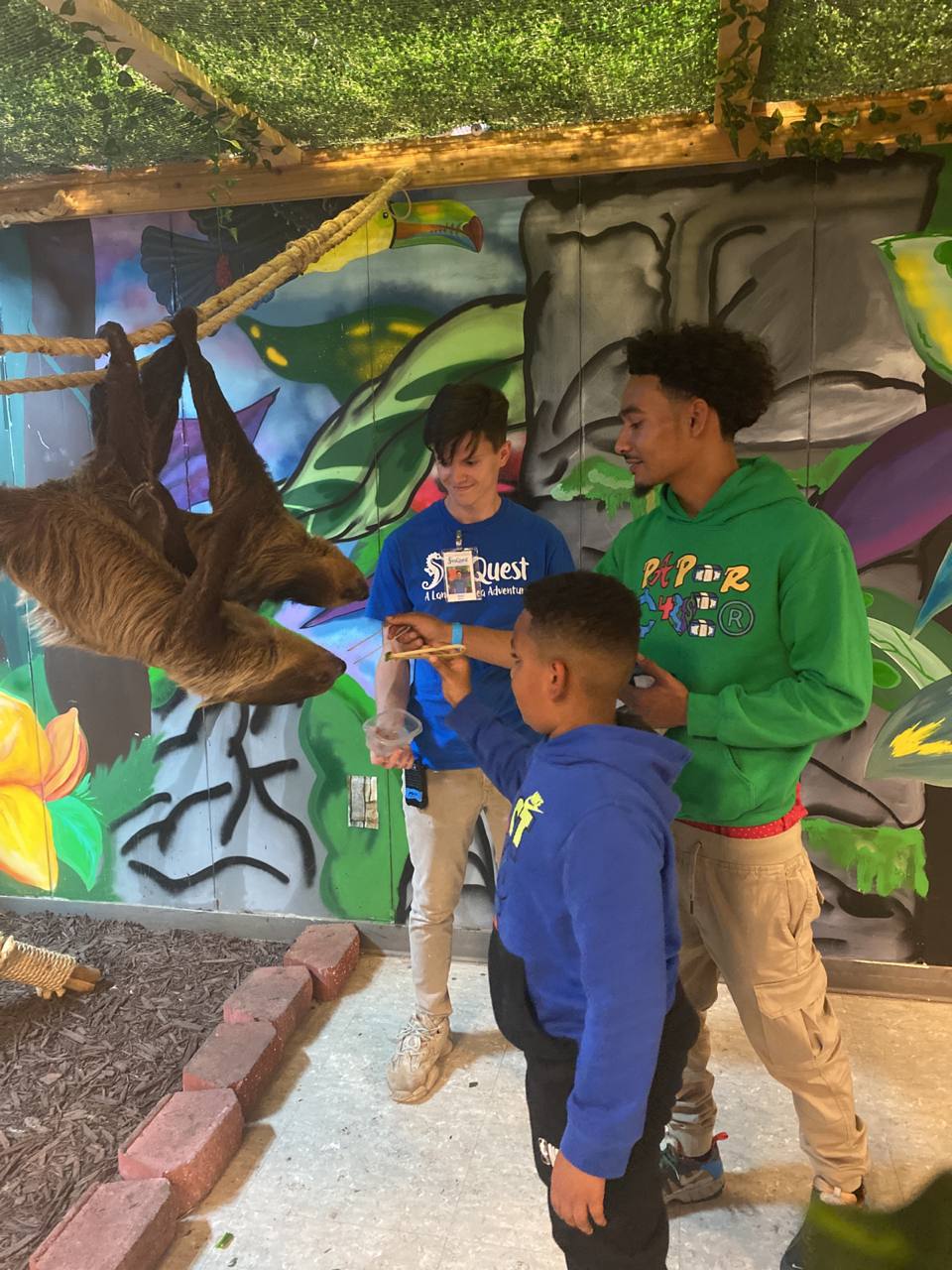
Caring for sloths, with their unique biological needs and calm demeanor, requires a nuanced understanding of their natural habits and preferences. At SeaQuest, a facility known for its interactive animal experiences, the welfare and conservation of these gentle creatures are paramount.
By exploring the daily routines, health monitoring practices, and the educational role SeaQuest plays in promoting sloth conservation, we’ll provide an in-depth look at what it takes to ensure the well-being of these fascinating animals. Whether you’re an animal enthusiast, a conservation advocate, or simply curious about sloths, join us as we uncover the dedication behind the scenes.
Introduction to Sloth Care at SeaQuest
At the heart of SeaQuest’s mission lies a profound commitment to the welfare of all its inhabitants, especially the sloths that call SeaQuest home. SeaQuest upholds the highest standards of animal care, ensuring that each sloth receives the attention, nutrition, and habitat it needs to thrive. Behind the scenes, a specialized team of animal care experts dedicates their time and expertise to the well-being of these sloths, employing a blend of scientific knowledge and compassionate care to meet their every need.
Central to SeaQuest’s approach is a deep-seated respect for ethical considerations in animal care. These principles guide every decision, from designing the sloths’ habitats, which are meticulously crafted to mimic their natural environments, to developing enrichment programs that stimulate their physical and cognitive well-being.
At SeaQuest, the care of sloths is about maintaining health and fostering an environment where these captivating animals can exhibit natural behaviors and engage in meaningful interactions, both with their environment and with the humans who care for them. This dedication enhances the lives of the sloths at SeaQuest. Our aquariums serve as an educational platform for visitors, raising awareness about conservation issues and promoting a more informed and compassionate understanding of wildlife.
Sloth Conservation Efforts at SeaQuest
SeaQuest is vital in protecting sloths, focusing on conservation efforts that make a real difference. We work closely with various conservation organizations, forming partnerships that amplify our impact on sloth preservation. Together, we tackle challenges facing sloths in the wild, from habitat destruction to climate change.
Our partnerships allow us to participate in initiatives that benefit sloth populations, including habitat restoration and research projects to understand sloth needs better. By pooling resources and expertise with our partners, SeaQuest contributes to efforts that ensure sloths can thrive in their natural habitats.
At SeaQuest, we’re proud of our role in these achievements and remain committed to the mission of sloth conservation. Through education, collaboration, and direct action, we aim to secure a brighter future for sloths, ensuring they remain a vital part of our world’s biodiversity.
How Does SeaQuest Care for Their Sloths?
From their diet to their daily activities, each element of care is tailored to ensure that these gentle creatures live a life that is as enriching and natural as possible.
What do Sloths Eat at SeaQuest?
At SeaQuest, sloths receive a diet meticulously designed to mimic their natural eating habits, ensuring they get all the necessary nutrients for a healthy life. This diet includes a variety of leaves, fruits, and vegetables tailored to match the nutritional profile they would find in their natural habitat. The importance of a balanced diet cannot be overstated; it is crucial for maintaining their slow metabolism, supporting their immune system, and promoting overall well-being. Our dedicated team continuously researches and adjusts the dietary plans to meet each sloth’s needs, emphasizing the role of nutrition in their care.
What are Sloth’s Natural Habitats, and How Do SeaQuest’s Habitats Compare?
Sloths naturally reside in the rainforests of Central and South America, where they thrive in the dense canopy, benefiting from the abundance of food and the protection it offers from predators. At SeaQuest, we strive to replicate this natural environment as closely as possible. Our habitats are designed to reflect the sloths’ natural surroundings, featuring a variety of climbing structures that mimic trees and vegetation similar to what they would encounter in the wild. This careful replication supports their natural behaviors, such as climbing and foraging, which are pivotal in their health and well-being. By providing an environment that feels like home, SeaQuest ensures that our sloths can lead content and enriched lives.
Life Expectancy of a Sloth in the Wild vs SeaQuest
In the wild, sloths typically live for about 10 to 16 years, depending on the species. However, in the protected environment of SeaQuest, they often exceed this range, thanks to the absence of predators, consistent access to nutritious food, and comprehensive veterinary care. Factors contributing to their longevity at SeaQuest include a stress-free environment, meticulously designed habitats, and regular health monitoring. Our sloths benefit from a level of care that addresses their physical and emotional needs, significantly extending their life expectancy compared to their wild counterparts. This stark difference highlights the impact of dedicated, informed care on the lifespan of these remarkable animals.
Sloth Interactions at SeaQuest: Do Sloths Like to Be Held?
Sloths are known for their slow-moving nature and often calm demeanor, which makes them ideal candidates for close human interaction. However, their preferences and behaviors can vary greatly. At SeaQuest, the well-being of sloths during human interactions is of utmost importance. We carefully monitor our sloths’ responses to being held and adapt our practices to manage their comfort and stress levels effectively. Guests receive clear guidelines on how to interact with sloths, emphasizing gentle and respectful handling under the supervision of trained staff to ensure a positive experience for both the sloths and our visitors.
Can Sloths Hurt People?
Sloths have sharp claws primarily used for climbing and hanging onto tree branches, not aggression. However, like any wild animal, they can use these claws defensively if they feel threatened. At SeaQuest, we minimize risks through informed interactions, educating our guests on sloth behavior and the best ways to interact without causing stress or discomfort to the animal. The incidence rates of sloths hurting people are extremely low, especially with preventative measures and close supervision by our experienced staff during any interaction.
Safety Precautions for Sloths and Guests at SeaQuest
The safety and comfort of both our sloths and guests are paramount. SeaQuest has implemented several measures to ensure a secure environment for sloth interactions. These include designing sloth enclosures that provide ample space and naturalistic elements for the sloths to retreat and setting strict guidelines for guests during interactions. Instructions for guests include washing hands before and after interactions, avoiding loud noises, and following the staff’s directions. These precautions help create a safe and enjoyable experience for everyone involved, making the encounters enriching and memorable while prioritizing the well-being of our beloved sloths.
Ensuring the Psychological Well-being of Sloths at SeaQuest Locations
At SeaQuest, we recognize that the mental health of our sloths is just as important as their physical health. A key component of our care strategy is providing a range of enrichment activities designed to stimulate their minds, encourage natural behaviors, and prevent boredom. These activities are crucial for maintaining a high quality of life within the controlled environment of an aquarium or wildlife facility.
Enrichment activities for sloths at SeaQuest are diverse and tailored to mimic the complexity of their natural habitats. Examples include the introduction of various textures and objects they can explore and manipulate, puzzles that reward them with food treats, and structures that allow for climbing and hanging, which are essential for a sloth’s physical and mental well-being. We also vary these activities regularly to keep the environment engaging and new.
Moreover, we ensure that sloths can engage in solitary activities, respecting their natural inclinations while providing chances for social interaction under carefully managed conditions. By balancing these aspects of care, SeaQuest aims to support not only the physical health of sloths but also their psychological well-being, demonstrating our comprehensive commitment to the animals in our care.
Veterinary Care for Sloths at SeaQuest
At SeaQuest, our sloths’ health and well-being are paramount. Our comprehensive veterinary care program ensures that these gentle creatures receive the highest standard of medical attention, embodying our commitment to their overall health.
SeaQuest locations have an in-house veterinarian who visits locations monthly to inspect habitats and conduct routine check-ups. The in-house veterinarian and the National Husbandry Director must approve every change to the sloth’s diet, habitat, or lifestyle. This ensures that every change our sloths experience is ethically implemented, no matter how small.
Despite our best preventive measures, emergencies can occur. SeaQuest has developed detailed emergency care protocols to respond swiftly and effectively to any health crises our sloths may face. Our on-site veterinary team is equipped with the necessary tools and expertise to provide immediate care, and we have established partnerships with specialized animal health facilities to ensure that our sloths receive the best possible treatment in case of more severe health issues.
Training and Education for SeaQuest Staff
The foundation of exceptional animal care and conservation lies in the education and training of our staff. Our comprehensive training programs are designed to equip our animal care team with the knowledge and skills necessary to provide the highest level of care for our sloths and other exotic animals.
Our training programs cover a broad range of topics, from the basics of animal husbandry to the intricacies of exotic animal care, including the specific needs of sloths. Staff members undergo rigorous training, including theoretical knowledge and practical, hands-on experience. This ensures that they are well-prepared to meet each animal’s unique needs, provide enrichment, and handle any situation that may arise with competence and confidence.
Because animal care best practices and conservation science are continually evolving, SeaQuest emphasizes the importance of ongoing education for our staff. We provide continuous learning opportunities, including workshops, seminars, and access to the latest research on sloth care and conservation. This commitment to lifelong learning ensures that our team remains at the forefront of animal care, equipped with the most up-to-date information and techniques to benefit the animals in our care.
The qualifications of our staff reflect our commitment to excellence in animal care. Our team comprises individuals with diverse backgrounds in zoology, veterinary medicine, and related fields, each bringing a wealth of knowledge and expertise in exotic animal care. Many have specialized training in handling, nutrition, and medical care specific to sloths and other exotic species, ensuring that our animals receive care informed by the latest advancements in the field.
Recently, staff on our husbandry team attended the International Sloth Symposium and received additional training and certifications for Sloth care. 